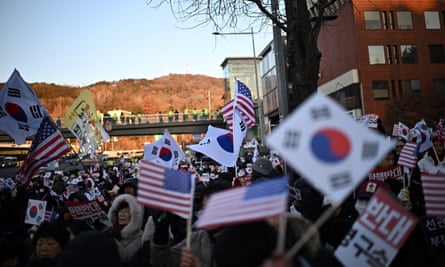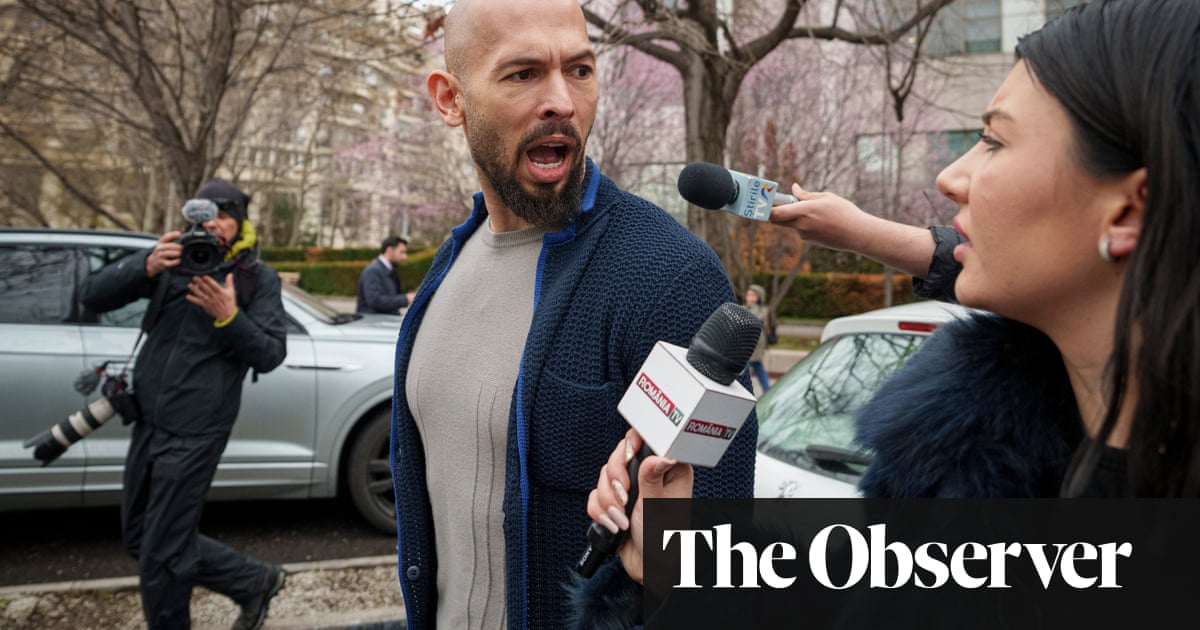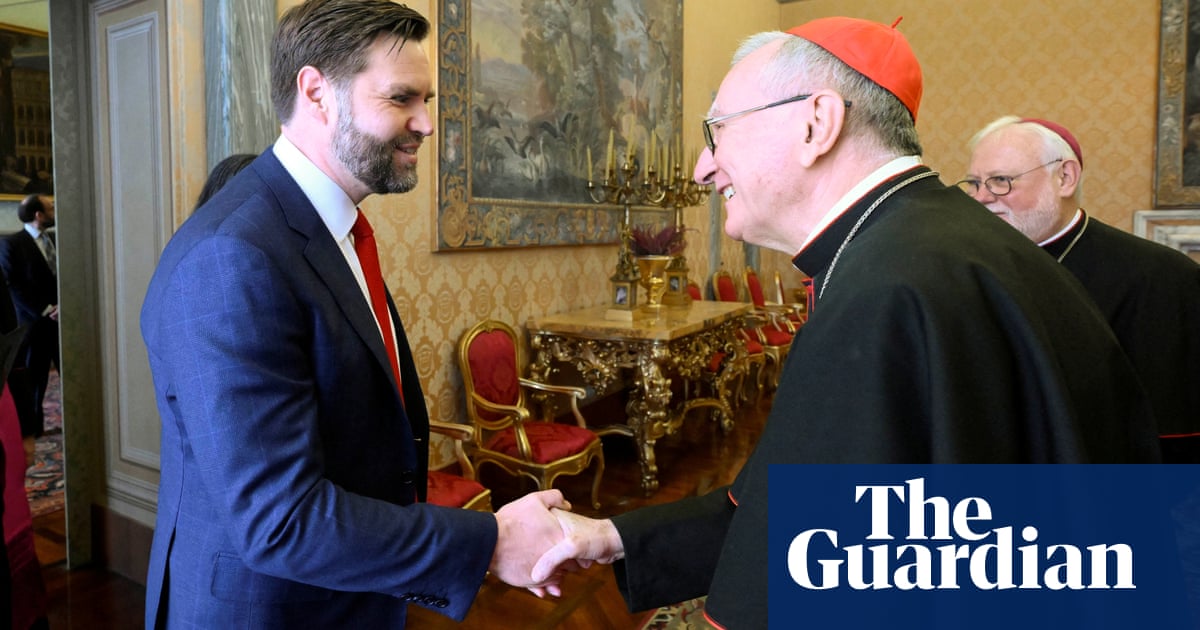As investigators attempted to arrest president Yoon Suk Yeol on Friday morning, his supporters gathered outside the presidential residence waving two national flags: the South Korean Taegukgi alongside the American Stars and Stripes.
To outsiders, the unexpected combination may seem baffling. But to Yoon’s supporters, America represents more than an ally: it’s a perceived ideal. The symbolism of the US flag is a declaration of a broader cultural and spiritual order they believe is under threat.
Holding both flags outside Yoon’s residence on Friday, 74-year-old Pyeong In-su said the police had to be stopped by “patriotic citizens” and he hoped US president-elect Donald Trump could come to Yoon’s aid.
“I hope after Trump’s inauguration he can use his influence to help our country get back on the right track,” he said, as he waved both flags with the message: “Let’s go together” in English and Korean.
While pro-Yoon groups criticise their opponents as being subservient to North Korea, they openly venerate the United States.
They frequently remind followers that the US liberated Korea from Japanese colonial rule and defended it during the Korean war of 1950-53, casting America as a divine protector of democracy embedded in Christian values.
Over recent years, these groups, which remain a fringe element of South Korean society, have increasingly adopted rhetoric from the American right, particularly around claims of election fraud.

This narrative has intensified since Yoon’s short-lived declaration of martial law this December, which he justified by claiming electoral manipulation and the presence of “pro-North Korean, anti-state forces” – actions that led to his impeachment and current arrest warrant.
With echoes of claims of election denial movements in the US, a Korea Research poll released this week showed that 65% of Yoon’s conservative People Power Party supporters believe last April’s parliamentary elections were fraudulent, despite only 29% of the general public sharing this view.
The elections saw the opposition parties including the Democratic party win a decisive victory, securing 192 seats in the 300-seat parliament. No major election observers or court has raised concerns about the vote, with fraud claims debunked as unsubstantiated.
Regardless, the allegations have been amplified through a network of far-right YouTube channels, where conservative commentators livestream the rallies and promote a wide range of conspiracy theories.
These online echo chambers, which Yoon himself has been accused of relying on for information, have become key platforms for spreading unfounded claims and maintaining supporter morale.
In both South Korea and the US, similar tactics have been observed: questioning election integrity, claiming moral authority through religious values, and portraying political opponents as enemies of the state.
The unlikely links between the movements can be traced back to the rise in evangelical Protestant churches in South Korea, which form the backbone of Yoon’s most ardent support base. Many of these churches were founded by Christians who fled communist persecution in North Korea before the Korean war, embedding a fierce anti-communist ideology into their religious identity.
These churches, including the influential Sarang Jeil church led by populist pastor Jeon Gwang-hoon, hold regular rallies in central Seoul’s Gwanghwamun Square to denounce any opposition as “communist forces” who deserve the death penalty.
Their weekly gatherings often feature simultaneous English translation on stage and livestreams targeting American audiences, with US bank account details displayed for international donations.
The impeached leader has also tapped into the messaging. On New Year’s Day, Yoon himself reinforced their narrative in a defiant message to supporters, warning of “forces infringing on sovereignty” while vowing to “fight until the end”. He admitted watching their YouTube broadcasts.
At Friday’s rally outside his residence, protesters held banners in Korean claiming “election fraud” and in English, “Stop The Steal”. When asked for specific evidence of electoral manipulation, none could answer.

 3 months ago
48
3 months ago
48













































